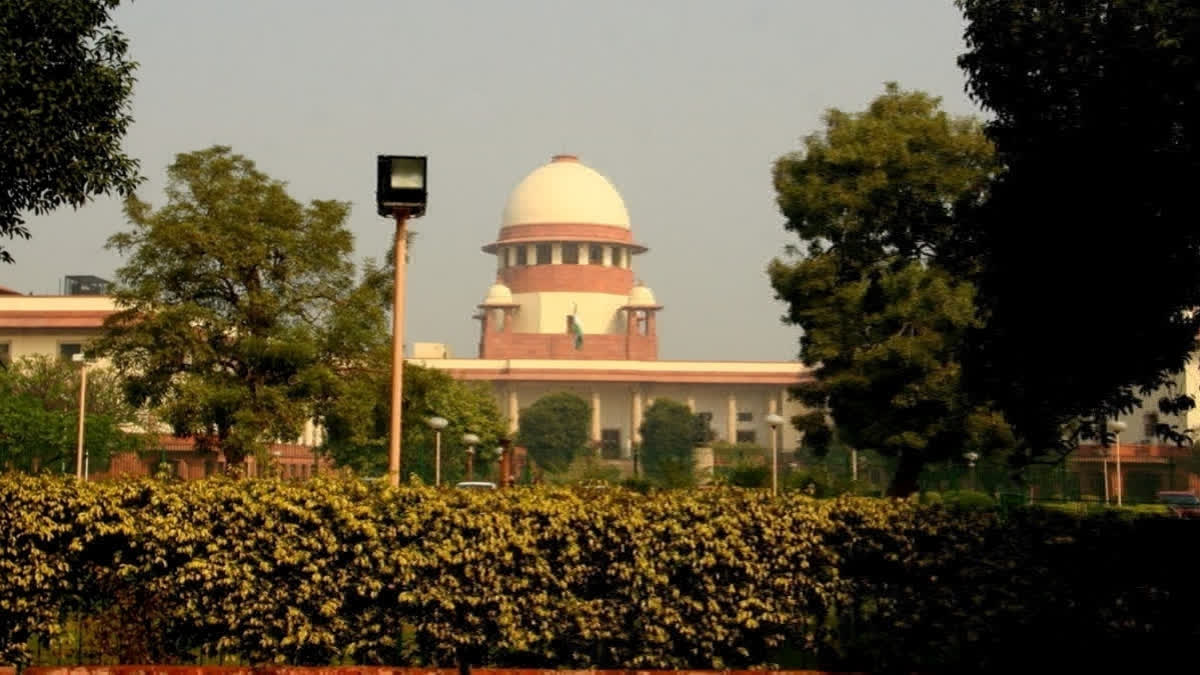New Delhi: The Supreme Court on Friday stressed on having a balanced approach when state police book central government officials, saying that to say that state police will always have power is a very dangerous weapon, and also to say that state police will never have power that may also be never desirable in the interest of rule of law and larger public interest.
A bench comprising Justices Surya Kant and Ujjal Bhuyan was hearing a plea by the Enforcement Directorate against the alleged non-cooperation by the Tamil Nadu government in sharing FIRs related to probes into money-laundering cases in the state.
During the hearing, the bench pondered over having a balanced approach regarding investigation involving erroneous officers of the central government, working in a state.
Justice Kant said in a hypothetical situation where a state government decides to arbitrarily arrest central government officers, then “this may create a problem, a constitutional crisis."
Justice Kant further added that at the same time there may be a central government officer whose conduct is "so unwanted" that the state police are compelled to intervene immediately, and added that there will be different kinds of situations.
"To say that state police will always have power is a very dangerous weapon. To say that state police will never have power that may also be never desirable in the interest of rule of law and in the larger public interest," said Justice Kant.
“But in a case that the Union says that we will investigate our officer….”, said Justice Kant.
At this juncture senior advocate Amit Anand Tiwari, representing the Tamil Nadu government, “We will consider this issue that is the request I was making and let it be fixed for final disposal on a non-miscellaneous day. We will make our arguments on this issue and let the Union be also heard on this issue”.
Tiwari added, “As far as the accused is concerned, the accused has no right to choose which investigation agency will conduct the probe”. The bench said the accused has a right to a fair trial, and it should not matter to them which investigative agency handles the case.
The bench said in a federal structure scheme how this matter will be resolved is something it will examine. It was argued before the bench that it had earlier agreed to consider the larger issue. Tamil Nadu counsel contended that certain judgments permit the state anti-corruption bureau to investigate if an officer of the Union is caught in their state.
The bench agreed to list the plea for a detailed hearing to decide on the matter. The apex court allowed bribery-accused ED officer Ankit Tiwari to appear before the special trial court at Madurai, Tamil Nadu virtually during hearings in the case against him instead of having to attend the trial proceedings physically.
The bench permitted Tiwari to stay with his family in Madhya Pradesh or elsewhere and attend the criminal trial before the Tamil Nadu court through video conference and also extended his interim bail in the matter.
Last year, Tiwari was arrested by Tamil Nadu's Directorate of Vigilance and Anti-Corruption (DVAC) after allegedly having been caught accepting a bribe of Rs 20 lakhs.



